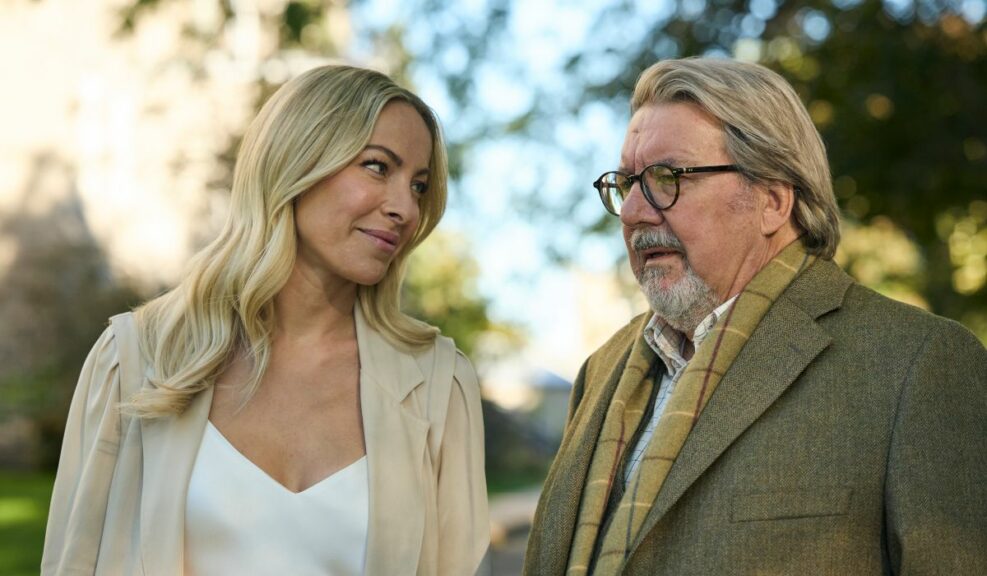Written and Directed by Deny Arcand | 115 min | ▲▲△△△
Well, you can’t accuse Deny Arcand of a lack of nerve. The veteran Canadian filmmaker has returned to his favourite storytelling perspective — the discontent of the bourgeoise, particularly its white male contingent — and is taking his opportunity to wade into hot button politics. I’d suggest the weapon of satire is best imagined as a blade — stab sharply and leave no prisoners. When Arcand follows that advice his film works, but too often his rage against political correctness goes wide of its target and a slide into self-pity doesn’t look good on him.
I’m sure he’d argue that his lead character is a pitiful sort, with lots of self-deprecating humour baked in, and there’s no arguing that. Arcand favourite Rémy Girard — from The Decline of the American Empire and The Barbarian Invasions — is Jean-Michel Bouchard, a retired archivist (I think, it’s a little unclear). He definitely lives in an apartment in a gorgeous building that houses a seniors facility, a building that also holds a mural featuring the first meeting between First Nations and French explorer Jacques Cartier.
One of the key plot points — amongst many — has to do with student activists protesting this painting and the liberties its white artist has taken depicting the indigenous people. They say it’s racist, and want the home to do something about it.
And that’s not the only place where this mature gentleman, very much stuck in the 20th Century, is at the receiving end of culture war armaments. When one of the residents of the home comes out as non-binary, a non-gendered washroom must be provided — Bouchard’s friend, Suzanne (Sophie Lorain), manager of the facility, complains that she has to do it without a corresponding bump in her budget.
As we go along, Bouchard, who’s feeling like his life is over and that he’s out of touch, starts to recognize Suzanne is interested in him, and that she could use some help with a family issue.
So the film’s also a romance, but with a light touch, and when that touch is applied to the comedy it also works best. Jabs at performative activism and all kinds of bureaucracy, that’s entirely welcome. Undoubtably there’s a lot here a Quebec audience might appreciate, inside jokes for those who know. A scene where Yves Jacques and Robert Lepage show up as cultural representatives and raise a stink for the sake of art is a delight, no matter where you’re watching it.
In French where every noun is gendered there’s gotta more opportunity to stumble, but trying to squeeze laughs out of pronoun awkwardness feels like it might’ve been funny 10 years ago. And a gag early on where our hero is up for an award and has to allow four diverse, “angry” women to squeeze past him, that’s pretty damn lame. It shows Arcand’s blade can be dull as a spoon and where the film’s perspective is sour.
I couldn’t help but note a sad irony: I struggled to find a trailer for the film with English subtitles. The distributor treated Halifax press corps to a screening at Park Lane, but I was the only one who showed up. That could be because I’m the last film reviewer actually getting paid in Halifax. Either way it’s disappointing to me that, whatever my reservations of the film, a new project from one of Canada’s most revered filmmakers is getting so little attention in English Canada. That the film is about age and fear of irrelevance makes it sadder.











